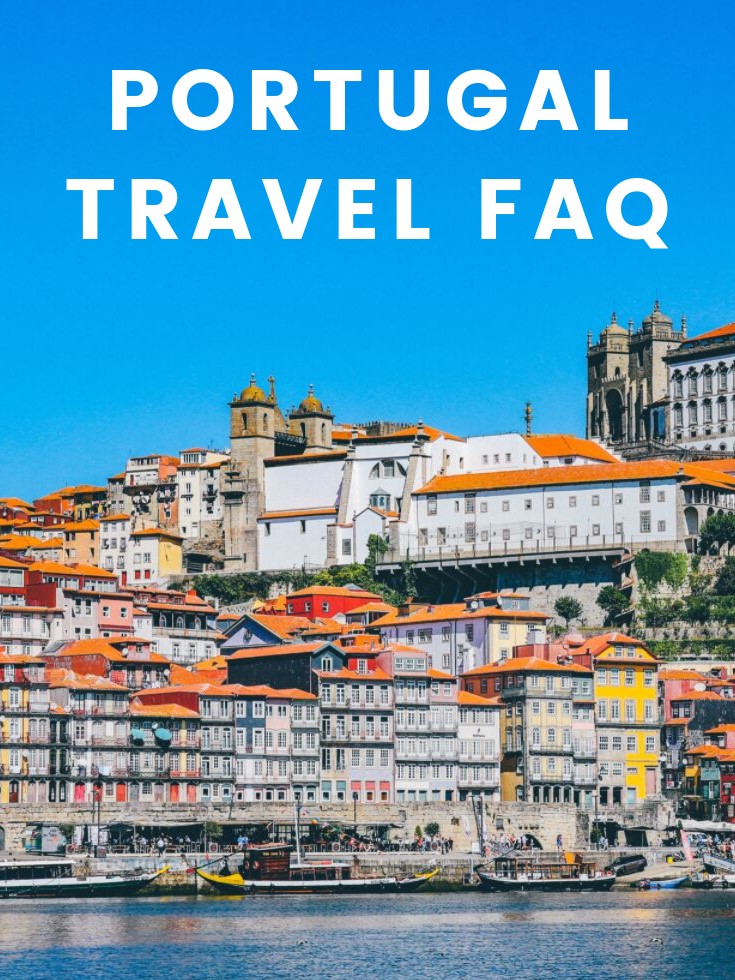Have a question?


Updated September 19, 2023
Heading off to Portugal but have some questions first? You’ve come to the right place! We’ve got answers to all your frequently asked questions around traveling to Portugal, from whether you can use Uber to how much you should tip—and much, much more.
When it comes to Portugal, we know plenty! Our advice: for the most authentic experience possible, have Project Expedition help you plan your trip!
A: Americans don’t need a visa to visit Portugal. It’s part of the Schengen zone, which means you can visit out for 90 days with a valid US passport.

A: You don’t necessarily need a ton of Portuguese to navigate Portugal as a traveler, especially in cities like Lisbon and Porto. However, brush up on a few phrases (obrigado means “thank you”!) to show you’re at least willing to try.
Pro tip: Don’t speak Spanish. It may sound similar to Portuguese, but it’s still an entirely different language, and you could risk insulting someone. Sloppy-yet-polite Portuguese is better than defaulting to Spanish.
A: Portugal is actually one of the most budget-friendly countries in western Europe! Typical 3-course prix-fixe lunches cost around €9 in most Lisbon cafes, and beer and wine also come significantly cheaper in Portugal as well. As always, though, traveling like a local is the best way to stretch your budget. Opt for Airbnb over hotels; eat at local restaurants off the tourist trail; take public transport instead of taxis (a one-way metro ticket in Porto costs €1.20).
A: Of course! Portugal is very card-friendly. As in most of Europe, you’ll need a chip-enabled card and a 4-digit pin to use ATMs. Also, make sure to find out whether or not your bank or card provider charges foreign transaction fees—finding out afterward is a surprise that thrills no one.
Pro tip: Always tell your bank and/or card provider before you travel. Otherwise, you risk having your cards frozen for suspicious foreign activity.
A: Portugal is among the safest countries in Europe. It has a much lower crime rate than the USA does, the crime that does exist is primarily petty theft, and it’s a great spot for female travelers—catcalling is actually illegal in Portugal. Of course, look out for pickpockets in crowded tourist areas, and if you go to the beach pay attention to flags signaling dangerous undercurrents.

A: It really depends on you. Each season offers something special. The weather is most temperate in spring and autumn (plus, there’s a ton going on like the city of Braga’s Holy Week festivals). Summer means higher temperatures, but its longer sun-filled days are ideal for a beach getaways. Portugal is also super great to visit in the winter, since its 61°F average winter temperature is ideal for long walks.
A: There are tons of unique places to visit in Portugal. Lisbon has it all in terms of castles and cafes. Go to Peneda-Geres National Park to connect with the best nature Portugal has to offer, and, at the end of the day, you won’t go wrong with sipping Port wine in the Douro River Valley.
Whatever you do, make sure to hear some Fado (traditional Portuguese music), sample the local liqueur known as Ginjinha, and allow yourself to be enchanted by the gorgeous Portuguese countryside.
A: Most attractions in Portugal won’t disappoint. Granted, some people do say the scenic trams in Lisbon are overpriced (but they are a unique way to see the city), but In terms of areas and neighborhoods, just exercise caution anytime you’re in a tourist-heavy place. Places like downtown Lisbon or Nazare’s beach spots can be hotspots for pickpockets and theft.
A: Nope. If you’re up to date on your routine vaccinations, you’re good!
A: Don’t be one of those people who only realize they need an adaptor at 2 AM when their phone drops to 5%. You need a standard European, 2-pin adaptor, also known as Type F sockets—they look like this.
A: Yes. Uber is up and running in major cities in Portugal but only has a slight edge price-wise over taxis. But given that it’s only in certain cities, we’d recommend downloading a taxi-hailing app like Free Now.

A: Portugal has great public transportation on the whole that can whisk you off virtually anywhere you want to go. Both Porto and Lisbon have underground metro systems, and all major cities have local buses and taxis. For getting between cities, the national train system, (Comboios de Portugal) or coach buses through Redes Expresso are your best bet.
Pro tip: Highways in Portugal are incredibly scenic, so renting a car can be a good option.
A: Obviously, there are the no-brainers you need to bring with you: your passport, credit cards, good walking shoes, adapters, etc. However, don’t forget sun protection (sunglasses and sunscreen)—temperatures get warm in the summer with 11-12 hours of sunshine. And don’t forget to pack some layers—temperatures often drop into the 60s at night, even in the summer, especially near the coast.
A: Yes and no. It’s customary to leave your change and/or round up to the nearest euro at bars, cafes, and coffee shops. A tip of 10% at is customary at high-level restaurants if the service is exceptional. Just beware that service charges are sometimes included in your bill!
It’s customary to tip other services, like bellhops and housecleaning, an extra €1 to €2—and be prepared to tip tour guides €5 to €15 depending on how much time they spend with you.
For answers to every Portugal question imaginable, connect with Project Expedition for help planning your trip.

How should we contact you?
Call
Thank you! We'll get back to you as soon as possible!
Click to register and track your question!
If you would like to follow up with us:
+1 (855) 782-3006